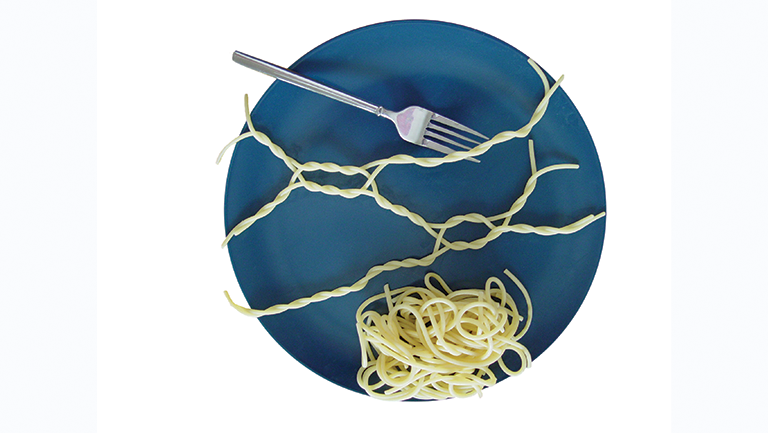Above: Homologous recombination is a DNA repair process for double strand breaks.
A new investigation of more than 53,000 stored tumor samples finds evidence of a key deficiency in a repair process designed to keep DNA from being mutated and causing cancer.
The DNA repair deficiency, called homologous recombination deficiency, or HRD, has previously been studied in only a few cancers, but as researchers at Georgetown Lombardi Comprehensive Cancer Center report, HRD can be found in all of the cancer types the researchers studied, including prostate, breast, pancreatic, and endometrial cancers as well as two of the more deadly types: ovarian cancer and glioma, a type of brain cancer.
Looking at the tumor samples, researchers found evidence of HRD in the 20 cancer types studied. The findings could play an important role in identifying which mutated genes, and which types of cancer, could be targeted to take advantage of the deficiency and ultimately help in treating cancer. The most commonly mutated genes were found to be PTEN, BRCA2, BRCA1, ATM, and PALB2.
“We know that patients with BRCA mutations are at high risk for developing breast, as well as pancreatic, ovarian, prostate and other cancers, and we have learned over time that BRCA plays a very important role in DNA damage repair,” says the study’s lead author, Arielle Heeke, MD, a clinical fellow at Georgetown Lombardi. “But BRCA is just one of the many genes that encode important proteins in the DNA repair pathway known as homologous recombination.
“With ongoing studies of the homologous recombination pathway and its impact on cancer development, we may identify additional genes that, when mutated, allow for either improved response to specific treatments or conversely, portend more aggressive tumor biology, and this could greatly inform development of new cancer therapies,” Heeke explains.
While the clinical impact of many of these mutations remains unknown, a new clinical trial at Georgetown Lombardi is looking to evaluate the effects of inhibiting a DNA repair enzyme known as PARP in tumors with HRD.
“If, as we postulate, the combination of chemotherapy and PARP inhibition is successful in treating patients with HRD tumors, I expect that others will start exploring whether similar drugs or analogous therapies can make a difference in these diseases,” Heeke concludes.

